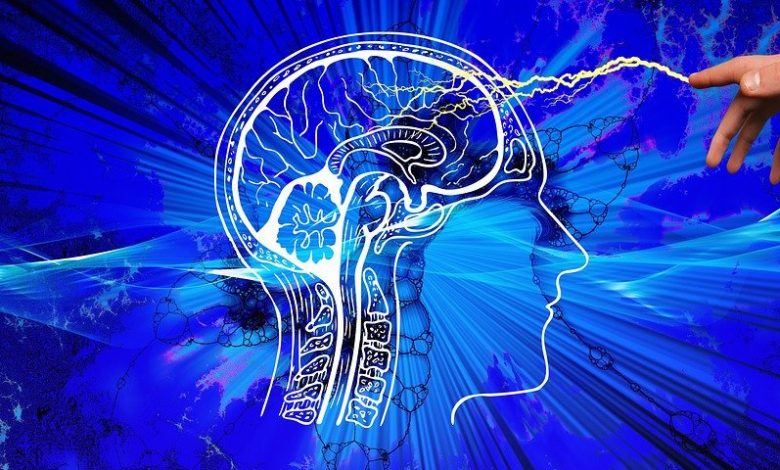Mental Concentration – 6 Actions To Avoid

Without mental concentration we find it difficult to carry out the tasks of our day, in particular study and work, those productive activities that we want and must do, and from here our future may depend, but on which we struggle to focus.
The level of mental focus that we are able to achieve depends on many factors, not least the genetic one, but there are many habits that can help mental concentration, or hinder it. Without realizing it we may indulge in habits that prevent us from concentrating on doing the things that matter, making daily tasks unnecessarily difficult and tiring, simply because our ability to concentrate has been ruined.
Taking care of your brain is the best bet and the best investment you can make, because everything else comes from there. Mostly we don’t even think about the fact that our mind needs attention, yet we are demanding about the performance of our mind.
But what habits slow us down, making us less productive, intelligent and creative?
# 1 Inactivity and Mental Focus
Sitting for too long is directly linked to health problems, but also to depression, anxiety and a general lack of motivation. Our mind needs to be stimulated, to see movement and to interact with other people.
Our concentration fails when we are too inactive. Inactivity is not rest, but lack of stimulation. Although remote work is appreciated by most for its convenience, it is also a cause of physical inactivity and lack of stimuli, in particular of social stimuli, so much so that it becomes a contributing cause of depression and lack of motivation. Many people find themselves not leaving their bedroom all day, sleeping, eating and working within the same four walls all the time. If you add to this perhaps a lack of physical and sporting activity, the brain is inevitably deprived of stimuli and outbursts. Poor mental concentration is not at this point a problem of lack of will, but of a lifestyle which inevitably takes away mental energy.
REMEDY
Any form of movement is good, stimulates circulation and breathing, relieves anxieties. It takes very little to remedy the problem, as long as it is done regularly.
As for exercise, half an hour of activity a day every day is enough. You can choose the activity you prefer and dose the intensity according to your state of health. It doesn’t matter if you do yoga, go for a run or do weights. The important thing is that you move. Taking long walks is one of the best activities, and it is within the reach of almost everyone. Go to a gym where you can chat with other people or go for a run in nature where your mind can relax.
Keeping the physique healthy keeps the brain healthy and therefore raises mental focus. Remember: “I don’t have time” is an excuse, it’s a matter of priority.
Also make an effort to get out of the house for social events, schedule at least one date a week, particularly if you are naturally introverted and it doesn’t come naturally to you. Get out of the house whenever you can, even if you’re alone and don’t have a specific half.
# 2 Excessive information kills the ability to focus
The amount of information that is poured on us every day is enormous and a lot of mental energy is spent on its management. Each consumes something like 34 gigabytes of data per day. It is no coincidence that the number one culprit for lack of mental focus is excessive, continuous and uncontrolled input of information.
By continuously investing energy and attention to acquire information and manage it, we then no longer have mental energy to focus on the things we want to do and that really matter. The flow of information comes from different sources: emails, social media, talking to people, notifications on mobile phones (which also interrupt the flow of other activities), meetings, articles, books, videos, films, television series and even music, podcasts and advertising.
If we do not manage the information that comes to us, eliminating the sources of disturbance, limiting ourselves to really useful information and containing it in the ways and times we have established, we risk losing control, to the detriment of our mental concentration and our general well-being.
REMEDY
Decide what information you really need, limit the others as much as possible. Use information aggregation systems that provide you with what you are really interested in, filtering all the others.
Even a little bit of information at the wrong time can distract us. The mere thought that something is waiting for our attention diminishes our mental focus on what we are doing in the moment. A typical example of this are emails and messages on social and mobile. Choose a specific time of day to dedicate to checking your email, turn off notifications and choose a time of day to dedicate yourself exclusively to a pre-established activity.
Choose long form content, so you can focus on a single topic for a long time, rather than short form content, which forces you to change context every few minutes. Eliminate social media , gossip, news and other sources of information that you cannot control or that give you information about things that have nothing to do with you and your goals.
# 3 Loud Music
We usually like to accompany our activities, especially the most boring ones, with a little music. Music can give rhythm to our activities, both sports and work. We are then tempted to turn up the volume. But this, if done in access, can end up damaging our mental focus.
Once we get used to a high volume of sound, then a high level of stimulus, we become less sensitive to milder stimuli. Furthermore, music itself is information that our brain has to process. So even if in certain situations it can even help concentration, it still consumes mental energy.
So pay attention to the volume of the music: as a general rule, if you can hear the sound of earphones or headphones even if you hold them away from your ear, it means that the volume is too high. Give your mind moments of calm in the form of silence.
# 4 Mental Focus and Reality Show
Television and the screen in general are primary sources of distraction. Excited by the latest news, by the wait for the last episode, by the reflected emotions of a reality show, our reality appears dull and uninteresting. This has a negative effect on our mental focus, because our brain learns to tune into the fictional reality of television, at the expense of the one that matters most, that of our day.
Realities and programs of a similar nature, are the most insidious form of distraction that comes from the screen and represents the mental relative of junk food for our body: it gives great satisfaction in the short term by creating a form of addiction, but provides few real nutrients and many toxins to dispose of.
The content we watch through the screen affects our behavior on a subconscious level. This influence can be positive, but it can also be negative. High quality content stimulates curiosity and interest, makes people think and gives really useful information. Junk TV imbues us with the same qualities we see on screen.
Much of your mental potential can be wasted by consuming junk content.
# 5 Mental focus in the age of multitasking
The multitasking is sometimes promoted as a way to get more done in less time, but in reality turns out to be only one way to do things less well consuming our mental focus, with negative effects on the quality of our work.
The brain isn’t really capable of doing multiple things at the same time, so what we’re really doing when we multitask is constantly jumping from one thing to another. And each change involves an extra investment of mental energy: we end up consuming more than we save. Creativity in particular fails completely. It is best to focus on just one thing and do it well.
Multitasking means being chronically distracted, having no memory and not knowing how to filter out what is irrelevant. Instead, decide what is most important to do and dedicate a certain amount of time to that activity by eliminating everything else from your attention. You will think about other things you need to do at another time, scheduling the time to be dedicated specifically for them.
If you feel anxious about all the things you need to do, the solution is not to do more than one at the same time, but to eliminate the ones that aren’t really necessary and find ways to be efficient at doing the ones that really matter.
If you are interested in learning more about how to best use your time you can read this article: How not to waste time and make every moment count
# 6 Sugar doesn’t feed mental focus
Sugar is good and found in many easy and convenient foods. However, simple sugars cause spikes in the amount of sugar present in the blood, resulting in a collapse when our body releases insulin to counterbalance. This leads to abnormal blood flow to the brain and oxidative stress. Very often the mood swings, the moments of depression and general slowness that we can’t get over and that ruin our mental concentration are actually the consequence of an excessive consumption of foods rich in sugars. Your brain will be slow without you even realizing why.
So check your consumption of simple sugars, especially at breakfast. Even a good dose of sleep and regular habits can only do good for your brain and therefore your mental focus.
Taking care of our mind is a task that pays off in satisfaction and productivity, opening us to the possibility of giving our best.




